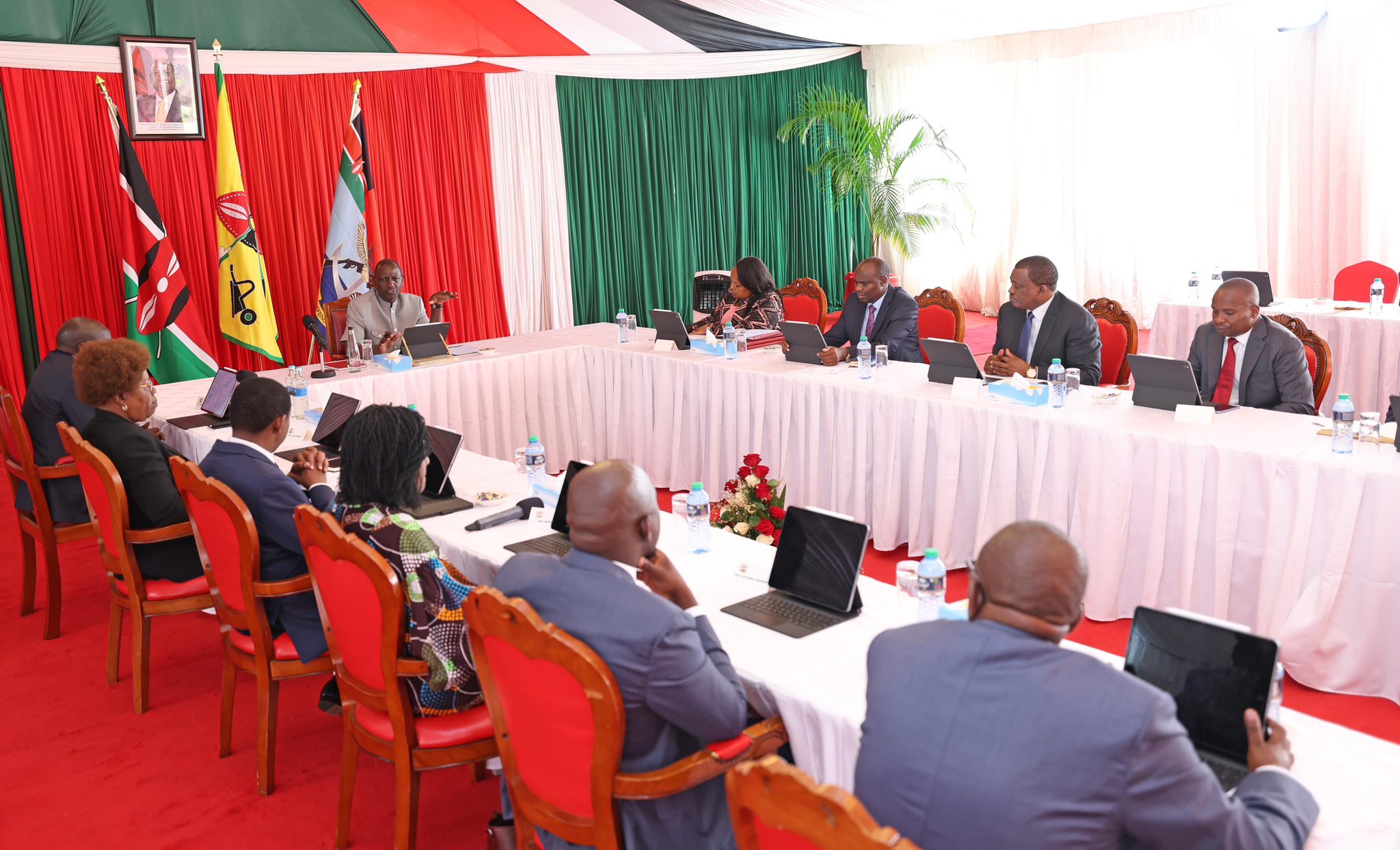The Cabinet has endorsed the write-off of debts public sugar mills owe the government following parliamentary approval.
In the Monday meeting at State Lodge Kisumu, President William Ruto acknowledged the two House’s resolutions on the reforms sanctioned by the Cabinet for the turnaround of the sugar sector.
Additionally, the National Treasury is working on waiving tax penalties and interest within 30 days as agreed by the Cabinet.
Plans for the payment of farmers’ arrears and employees’ salary arrears will also be unveiled within three months.
The sugar companies owe a whopping Ksh 117 billion in banks loans, tax arrears and penalties, farmers and employees’ dues. They owe banks Ksh 65 billion, Ksh 50 billion in taxes and nearly Ksh 2 billion in farmers’ dues.
Meanwhile, requests for proposals for the leasing of the five State-owned sugar mills will be published in a fortnight.
The Cabinet also endorsed a groundbreaking LPG (cooking gas) Growth Policy aimed at transitioning households from traditional fuels to the cleaner alternative of Liquefied Petroleum Gas (LPG).
Currently, 70 per cent of Kenyans rely on inefficient and polluting biomass and kerosene for cooking.
The proposed interventions include establishing common-user LPG import terminals, distributing subsidised cylinders to poor households, promoting LPG use in educational institutions and within affordable housing units.
These measures, the Cabinet said, aim to reduce consumer prices, enhance transparency and improve public safety, contributing to public health and environmental sustainability.
In another strategic move, Cabinet granted approval for the extensive re-development of KenGen’s Gogo Hydropower Plant in Migori County.
The project aims at elevating the plant’s generation capacity and enhancing efficiency, bolstering power generation and stability in Western Kenya.
The Cabinet also gave its nod to the implementation of the Kenya Health Emergency Preparedness, Response and Resilience Project.
The project, in collaboration with the World Bank, will include the establishment of vaccine production capacity at the Kenya BioVax Institute.
It will also strengthen regulatory processes at the Pharmacy and Poisons Board and enhance quality control and assurance capabilities at the National Quality Control Laboratory.
The project will guarantee a steady supply of locally-made vaccines, advance Universal Health Coverage, strengthen Kenya’s ability to deal with health emergencies, and foster economic growth.
In response to the challenges of vaccine apartheid and hoarding at the height of the COVID-19 pandemic, the Cabinet further approved the establishment of an inter-ministerial committee to negotiate the Pandemic Treaty with the World Health Organisation, a UN agency.
The committee will advocate equity in developing a pandemic treaty and strengthening the International Health Regulations (2005), emphasizing a global architecture for pandemic preparedness based on equitable principles.
To address transport safety, Cabinet approved the establishment of the Kenya Transport Accident Investigation Bureau tasked with comprehensive transport-related accident investigations and safety recommendations.
In a bid to elevate Kenya’s standing in the sporting world, Cabinet approved construction and renovation projects crucial for hosting the Africa Cup of Nations in 2027.
The ambitious plan includes building the Talanta Sports Complex and extensive renovations at Nyayo National Stadium, Moi International Sports Centre, Kasarani, and Kipchoge Keino Stadium in Eldoret.
The upgrades are designed to meet the standards set by the Confederation of African Football for the prestigious event, positioning Kenya as a competitive sporting destination.
In education, Cabinet was briefed on the progress being made in the implementation of the recommendations outlined in the Report of the Working Party on Education Reforms.





